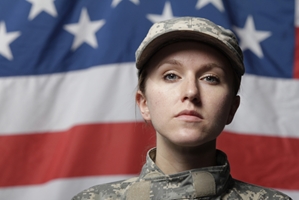A new study released by the American Heart Association revealed that female veterans seeking cardiac care from Veterans Affairs facilities tend to be much younger than their male counterparts. They are also more likely to be obese, depressed or experiencing post-traumatic stress disorder.
Study explores the unique demographic in relation to cardiac disease
The median age for female vets seeking care for heart issues was 57, while the median age for men with cardiac problems in their life after service is 63. This is interesting, noted the Minneapolis Star Tribune, since in the general population women tend to develop heart disease at older ages. Typical non-veteran women also tend to have a number of risk factors, such as hypertension and diabetes, contributing to their cardiac issues, while female veterans had far fewer risk factors.
The study revealed that 55.3 percent of women with the health problem were also dealing with depression, compared to 31.4 percent of men. About 20 percent of them are also experiencing PTSD, versus 16 percent of men. The Star Tribune noted that these figures could be important for establishing a more solid connection between mental health and cardiac wellness, especially in soldiers.
Female soldiers and the push toward better care
Psych Central explained that this study was done largely because there have been few reports focusing solely on female veterans. As this demographic continues to expand, however, it is crucial that medical professionals know their unique health challenges so that they are better able to provide quality care. The source explained that women are typically underrepresented in heart health research in general, so many times physicians are unaware that female patients might show different symptoms or require different treatments than men.
Within the veteran population, the number of women looking to obtain health care from VA hospitals has doubled in the past 10 years. The study was published in an issue of the AHA's journal, Circulation: Cardiovascular Quality and Outcomes, in a section dedicated to taking a closer look at the way women experience heart disease.
"In the future, if we really want to answer all the questions we have about gender differences, then we need studies that are large enough, focused enough, and with the intent from the start to illuminate the issues around sex differences," stated Harlan Krumholz, M.D., S.M., editor of the journal and director of the Center of Outcomes Research and Evaluation at Yale-New Haven Hospital.

